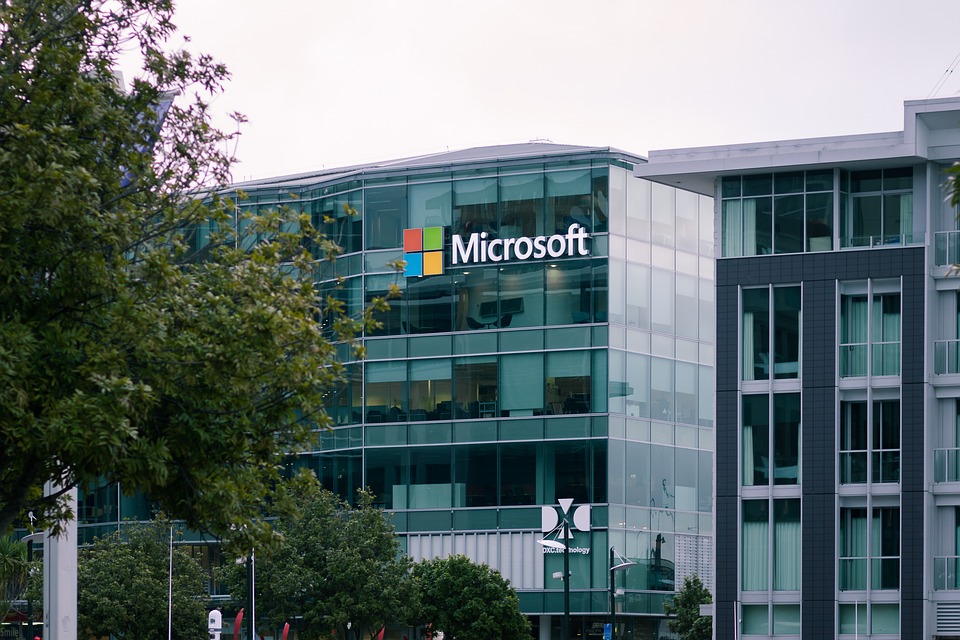Global Trends and Politics
Small Business Alert: How New Workplace Legislation Affects Your Bottom Line

As a small business owner, it’s essential to stay informed about the latest changes in workplace legislation. Recent updates can significantly impact your operations, employee management, and ultimately, your bottom line. In this article, we’ll explore the key changes and what they mean for you.
New Legislation and Its Impact on Your Business
Recent legislation has introduced several changes that affect small businesses, including:
Fair Labor Standards Act (FLSA) Overtime Rule Updates
In 2020, the FLSA overtime rule updates went into effect. The changes require employers to pay non-exempt employees who work more than 40 hours per week overtime, unless they are exempt. This update may affect your business, particularly if you have a high volume of non-exempt employees. Consider the following:
- Ensure accurate time tracking and record-keeping
- Review employee classifications to determine exempt status
- Consider adjusting employee schedules or roles to minimize overtime
- Prepare for potential overtime costs and plan accordingly
Paid Sick Leave and Family Leave
Some states and cities have implemented paid sick leave and family leave policies, which may require your business to provide similar benefits to your employees. This can include:
- Paid sick time off for employees who are ill or caring for a family member
- Family leave for bonding with a new child or caring for a sick family member
This legislation may vary by state and city, so it’s essential to understand the specific requirements for your business.
Data Privacy and Protection
The California Consumer Privacy Act (CCPA) and the General Data Protection Regulation (GDPR) are just two examples of data privacy and protection regulations. These laws require businesses to protect employee and customer data, including:
- Storing and processing sensitive information securely
- Providing notice and obtaining consent for data collection and sharing
- Honoring data subject access requests and erasure
As a small business owner, it’s crucial to ensure you’re complying with these regulations to avoid potential fines and damage to your reputation.
Other Key Updates
Other recent legislation includes:
- The American with Disabilities Act (ADA) updates for accessible technology and communications
- The Family and Medical Leave Act (FMLA) updates for expanded leave coverage
- The Tax Cuts and Jobs Act (TCJA) for tax reform and small business benefits
How to Stay Compliant and Adapt to Changing Legislation
To avoid penalties, fines, and reputational damage, it’s crucial to stay informed and adapt to changing legislation. Consider the following strategies:
- Stay up-to-date with the latest news and updates from reputable sources
- Consult with HR professionals, attorneys, or compliance experts to guide your business
- Review and update your policies and procedures regularly
- Communicate with employees and stakeholders about changes and expectations
Conclusion
Staying informed about new workplace legislation is vital for small business success. By understanding the latest updates and adapting to changes, you can ensure compliance, protect your business, and maintain a positive reputation. Remember to review and update your policies and procedures regularly, and consider consulting with experts to guide your business. By doing so, you’ll be better equipped to navigate the ever-changing landscape of workplace legislation and focus on growing your business.
FAQs
Q: What is the most significant change in recent workplace legislation?
A: The most significant change is the FLSA overtime rule updates, which require non-exempt employees to be paid overtime for work exceeding 40 hours per week.
Q: How do I ensure compliance with data privacy regulations?
A: Ensure you’re storing and processing sensitive information securely, providing notice and obtaining consent for data collection and sharing, and honoring data subject access requests and erasure.
Q: What are the key takeaways for small business owners?
A: Stay informed, adapt to changes, review and update policies and procedures regularly, and consult with HR professionals, attorneys, or compliance experts to guide your business.
Q: How do I handle changes in employee classifications under the FLSA?
A: Review employee roles and responsibilities to determine exempt status, and consider adjusting schedules or roles to minimize overtime.
Global Trends and Politics
Epic Universe Takes On Disney

Introduction to Epic Universe
The entrance portal to the Epic Universe theme park in Orlando, Florida, US, on Saturday, April 5, 2025, marks a significant milestone for Comcast as it positions its Universal Studios Orlando Resort as a destination, not a pit stop. For years, Universal’s Florida-based resort has played second fiddle to rival Disney. While it boasted three theme parks — Universal Studios Florida, Universal Islands of Adventure and water park Volcano Bay — and a handful of hotels, it wasn’t viewed as a destination.
A New Era for Universal
"This fourth gate changes everything," said Karen Irwin, president of Universal Orlando Resort. "It not only cements us as more than a full-week destination vacation, but it also adds three hotels to the resort." Epic Universe opens at a time of economic uncertainty in the U.S., as President Donald Trump has instituted a wide range of ever-changing tariffs that have stoked fears about a global trade war, sent the stock market on its own roller-coaster ride and has threatened to tip the American economy into a recession.
Economic Impact
The U.S. has already seen a slump in air travel, particularly from international travelers. While those guests are a small subset of overall visitors to central Florida, they often spend a longer period of time staying at hotels and visiting theme parks and spend more money on food and merchandise. "When there’s consumer uncertainty, the parks tend to feel it," Jason Armstrong, chief financial officer at Comcast, said during a MoffettNathanson conference last week. "They tend to snap back really quickly, but they do tend to feel that."
Theme Park Development
Guests ride Stardust Racers, a new dueling roller coaster ride in Celestial Park during a preview day for Universal Epic Universe on April 5, 2025. Orlando, Florida’s first new theme park in a generation is set to open to the public on May 22. Those who are most budget-conscious may have already been priced out of the theme park market, Craig Moffett, co-founder and senior analyst at MoffettNathanson, told CNBC. "There was a time when visiting a theme park was a mass-market vacation," he said. "It’s arguably too expensive for that to be the case anymore. The tickets alone can run a family a thousand dollars or more for a multiday visit, and that’s before hotels and meals. Perhaps that’s why we’re not seeing as much economic sensitivity as we might have expected."
Creating an Epic Universe
It took nearly a decade for Comcast to bring Epic Universe to life. From buying up land its previous administration had sold off, to Covid-related construction delays, this 750-acre development is the first new theme park to open in Orlando in 25 years. Epic Universe, first announced in 2019, represents the largest single investment Comcast has ever made in its theme parks business and in Florida overall, CEO Brian Roberts said at the time. That figure is rumored to be around $7 billion, though the exact amount is unclear.
Features of Epic Universe
The park features five themed worlds: The Wizarding World of Harry Potter – Ministry of Magic, Super Nintendo World, How to Train Your Dragon – Isle of Berk, Celestial Park and Dark Universe. Comcast’s investment in Epic Universe is part of a wider push to grow its theme park and experiences business. The company already has plans to open a year-round Hollywood Horror Nights themed experience in Las Vegas later this year, a kid-friendly park in Frisco, Texas, in 2026, and a U.K.-based park in 2031.
Growth and Expansion
"Comcast is leaning into the theme park segment for a simple reason: It’s working," Moffett said. "Growth is good and returns on investment are attractive, and the theme parks pay all kinds of strategic dividends by deepening customers’ relationships with their favorite Universal characters." While theme parks are a smaller revenue driver than Comcast’s media division, the division is profitable and has significant potential for growth. In 2024, theme parks accounted for a little less than 20% of Comcast’s overall revenue, but about 44% of its adjusted earnings before interest, taxes, depreciation and amortization.
Competition and Innovation
Universal’s theme park investment and expansion come as Disney has pledged to spend $60 billion over a decade to improve, innovate and expand its amusement locations. New developments, whether they be parks, lands or rides, spark healthy competition between the companies to create more compelling and innovative attractions to lure in guests. The company has received 161 patents for its innovations at Epic Universe, including new animated effects, ride designs and robotics. Across the new park, there are trackless ride systems, augmented reality and high-resolution projections. In total, the Universal Destinations and Experience division holds 3,300 patents globally.
Future Plans
A statue of Luna, the Roman goddess of the moon, overlooking the Celestial Park area, at the Epic Universe theme park in Orlando, Florida, US, on Saturday, April 5, 2025. "This is a truly momentous occasion for us, and just a significant milestone in that continuum of our development," said Mark Woodbury, CEO of Universal Destinations and Experiences. "The future is super bright. … There’s a lot of room for expansion. We’re already thinking about how that plays out. New attractions coming, new intellectual property coming, all part of our philosophy to grow our business by expanding our existing footprint."
Conclusion
The opening of Epic Universe marks a new era for Universal Studios Orlando Resort, positioning it as a destination rather than a pit stop. With its innovative features, themed worlds, and plans for future expansion, Epic Universe is set to draw in millions of visitors and generate significant revenue for Universal. The theme park’s impact will be felt not only in Orlando but also globally, as Universal continues to grow its theme park and experiences business.
FAQs
Q: What is Epic Universe?
A: Epic Universe is a new theme park located in Orlando, Florida, US, and is the first new theme park to open in Orlando in 25 years.
Q: How much did Comcast invest in Epic Universe?
A: The exact amount is unclear, but it is rumored to be around $7 billion.
Q: What are the themed worlds in Epic Universe?
A: The park features five themed worlds: The Wizarding World of Harry Potter – Ministry of Magic, Super Nintendo World, How to Train Your Dragon – Isle of Berk, Celestial Park and Dark Universe.
Q: What are Universal’s plans for future expansion?
A: Universal has plans to open a year-round Hollywood Horror Nights themed experience in Las Vegas later this year, a kid-friendly park in Frisco, Texas, in 2026, and a U.K.-based park in 2031.
Q: How will Epic Universe impact the local economy?
A: Epic Universe is expected to draw in millions of visitors, bolster theme park revenue for Universal, and bring billions of dollars to the local economy.
Global Trends and Politics
Monarch Raises $75 Million

Introduction to Monarch
Monarch co-founders (left to right) Ozzie Osman, Jon Sutherland, Val Agostino.
Courtesy: Monarch
The personal finance startup Monarch has raised $75 million to accelerate subscriber growth that took off last year when budgeting tool Mint was shut down, CNBC has learned.
Fundraising and Valuation
The fundraising is among the largest for an American consumer fintech startup this year and values the San Francisco-based company at $850 million, according to co-founder Val Agostino. The Series B round was led by Forerunner Ventures and FPV Ventures.
Mission and Objective
Monarch aims to provide an all-in-one mobile app for tracking spending, investments and money goals. The field was once dominated by Mint, a pioneer in online personal finance that Intuit acquired in 2009. After the service languished for years, Intuit closed it in early 2024.
"Managing your money is one of the big unsolved problems in consumer technology," Agostino said in a recent Zoom interview. "How American families manage their money is still basically the same as it was in the late 90s, except today we do it on our phones instead of walking into a bank."
Growth and Expansion
Monarch, founded in 2018, saw its subscriber base surge by 20 times in the year after Intuit announced it was closing Mint as users sought alternatives, according to Agostino.
Unlike Mint, which was free, Monarch relies on paying subscribers so that the company doesn’t need to focus on advertising from credit-card issuers or sell users’ data, said Agostino, who was an early product manager at Mint.
Competitive Advantage
Personal finance app Monarch, which has raised a $75 million series B investment.
Courtesy: Monarch
The startup aimed to make onboarding accounts and expense tracking easier than rival tools, some of which are free or embedded within banking apps, according to FPV co-founder Wesley Chan.
Chan said that Monarch reminds him of previous bets that he has made, including his stake in graphic design platform Canva, in that Agostino is tackling a difficult market with a fresh approach.
"What Val is doing, it’s the successor to anything that’s been done in financial planning," Chan said. "It’s frictionless, it’s easy to use and it’s easy to share, which is something that never existed before. That’s why he’s growing so quickly, and why the engagement numbers are so high."
Market Trends
The company’s round comes amid a period of muted interest for most U.S. fintechs that cater directly to consumers. Monarch is one of the few firms to raise a sizeable Series B; other recent examples include Felix, a money remittance service for Latino immigrants.
Fintech firms raised $1.9 billion in venture funding in the first quarter, a 38% decline from the fourth quarter that "signals deepening investor caution toward B2C models," according to a recent PitchBook report. Roughly three-quarters of all the venture capital raised in the quarter went to companies in the enterprise fintech space, PitchBook said.
"The sector is still in nuclear winter" as it faces a hangover from 2021-era startups that "raised way too much money and had zero progress and wrecked it for everybody else," Chan said. "That’s fine with me, I love nuclear-winter sectors."
Conclusion
Monarch’s successful fundraising and growing subscriber base demonstrate the company’s potential to revolutionize personal finance management. With its user-friendly mobile app and focus on paying subscribers, Monarch is well-positioned to succeed in a market where traditional players have struggled to adapt to changing consumer needs.
FAQs
Q: What is Monarch, and what does it offer?
A: Monarch is a personal finance startup that provides an all-in-one mobile app for tracking spending, investments, and money goals.
Q: How much did Monarch raise in its Series B funding round?
A: Monarch raised $75 million in its Series B funding round, which values the company at $850 million.
Q: What is the current state of the fintech industry, and how does Monarch fit into it?
A: The fintech industry is currently experiencing a period of muted interest, with many consumer-facing startups struggling to raise funding. Monarch is one of the few firms to raise a sizeable Series B, and its focus on paying subscribers sets it apart from other players in the market.
Q: Who led Monarch’s Series B funding round?
A: Monarch’s Series B funding round was led by Forerunner Ventures and FPV Ventures.
Q: What is the significance of Monarch’s growth, and how does it compare to other fintech startups?
A: Monarch’s growth is significant because it demonstrates the company’s ability to attract and retain subscribers in a competitive market. Monarch’s focus on user experience and its willingness to charge for its services set it apart from other fintech startups that rely on advertising or data sales.
Global Trends and Politics
United Airlines, Flight Attendants Reach Labor Deal

Introduction to United Airlines Flight Attendants’ New Contract
United Airline flight attendants picketed outside Terminal B at Logan Airport Thursday morning seeking a new contract.
Details of the Tentative Labor Deal
United Airlines reached an "industry-leading" tentative labor deal for its 28,000 flight attendants, their union said Friday. The deal includes "40% of total economic improvements" in the first year and retroactive pay, a signing bonus, and quality of life improvements, like better scheduling and on-call time, the Association of Flight Attendants-CWA said.
Key Components of the Deal
The union did not provide further details about the deal. United flight attendants have not had a raise since 2020. The cabin crew members voted last year to authorize the union to strike if a deal wasn’t reached. They had also sought federal mediation in negotiations.
Industry Context
U.S. flight attendants have pushed for wage increases for years after pilots and other work groups secured new labor deals in the wake of the pandemic. United is the last of the major U.S. carriers to get a deal done with its flight attendants.
Next Steps
The deal must still face a vote by flight attendants, and contract language will be finalized in the coming days, United said.
Conclusion
The tentative labor deal between United Airlines and its flight attendants marks a significant step forward for the airline industry. With the deal including significant economic improvements and quality of life enhancements, it is likely to have a positive impact on the flight attendants and the airline as a whole.
FAQs
Q: What is the main component of the tentative labor deal between United Airlines and its flight attendants?
A: The main component of the deal includes "40% of total economic improvements" in the first year and retroactive pay, a signing bonus, and quality of life improvements.
Q: Why did United Airlines flight attendants seek a new contract?
A: United flight attendants have not had a raise since 2020, and they sought better scheduling and on-call time, among other improvements.
Q: What is the next step in the process of finalizing the deal?
A: The deal must still face a vote by flight attendants, and contract language will be finalized in the coming days.
Q: How does this deal compare to other airlines in the industry?
A: United is the last of the major U.S. carriers to get a deal done with its flight attendants, following similar deals secured by pilots and other work groups in the wake of the pandemic.
-

 Career Advice6 months ago
Career Advice6 months agoInterview with Dr. Kristy K. Taylor, WORxK Global News Magazine Founder
-

 Diversity and Inclusion (DEIA)5 months ago
Diversity and Inclusion (DEIA)5 months agoSarah Herrlinger Talks AirPods Pro Hearing Aid
-

 Career Advice5 months ago
Career Advice5 months agoNetWork Your Way to Success: Top Tips for Maximizing Your Professional Network
-

 Changemaker Interviews5 months ago
Changemaker Interviews5 months agoUnlocking Human Potential: Kim Groshek’s Journey to Transforming Leadership and Stress Resilience
-

 Diversity and Inclusion (DEIA)5 months ago
Diversity and Inclusion (DEIA)5 months agoThe Power of Belonging: Why Feeling Accepted Matters in the Workplace
-

 Global Trends and Politics5 months ago
Global Trends and Politics5 months agoHealth-care stocks fall after Warren PBM bill, Brian Thompson shooting
-

 Global Trends and Politics5 months ago
Global Trends and Politics5 months agoUnionization Goes Mainstream: How the Changing Workforce is Driving Demand for Collective Bargaining
-

 Training and Development5 months ago
Training and Development5 months agoLevel Up: How Upskilling Can Help You Stay Ahead of the Curve in a Rapidly Changing Industry









